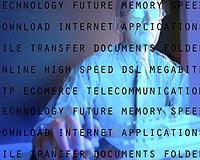 |
San Francisco (AFP) Feb 1, 2010 There has been an "alarming" rise in spammers and hackers hunting for victims at online social networks, according to a report released Monday by computer security firm Sophos. A "Social Security" investigation revealed an "explosion" of spam messages and nefarious software targeting users of social networks such as Facebook and Twitter. "Computer users are spending more time on social networks, sharing sensitive and valuable personal information, and hackers have sniffed out where the money is to be made," said Sophos senior technology consultant Graham Cluley. "Social networks and their millions of users have to do more to protect themselves from organized cybercrime, or risk falling prey to identity theft schemes, scams, and malware attacks." Facebook last month announced an alliance with Internet security specialty firm McAfee to get members of the world's leading online social network to better defend their computers. "Facebook is by far the largest social network -- and you'll find more bad apples in the biggest orchard," explained Cluley. "The truth is that the security team at Facebook works hard to counter threats on their site -- it's just that policing 350 million users can't be an easy job for anyone." Facebook users whose accounts are breached by malicious software or other cyberattacks will need to have their computers cleansed by McAfee before returning to life in the online community. Facebook members are also being offered free six-month subscriptions to McAfee security software and then discounted prices for continued service. McAfee and Facebook have collaborated on a free tool for cleaning up infected computers. "If we get people's machines this protection, it is better for them, for Facebook, and the Internet as a whole," Facebook director of communications and public policy Barry Schnitt said at the time of the announcement. The Sophos study found that 57 percent of online social network users reported getting spam in their virtual communities in what amounted to a 70.6 percent jump from the prior year. Some 36 percent of social network users queried said they had been sent software worms, viruses or other types of "malware" in what amounted to a 69.8 percent leap from the previous 12-month period, according to Sophos. Sophos's report also indicated that 49 percent of firms allow workers unfettered access to Facebook in a 13 percent rise from the previous year. "The grim irony is that just as companies are loosening their attitude to staff activity on social networks, the threat of malware, spam, phishing and identity theft on Facebook is increasing," said Cluley.
Share This Article With Planet Earth
Related Links Cyberwar - Internet Security News - Systems and Policy Issues
 Cyber spies and thugs attacking power-water plants
Cyber spies and thugs attacking power-water plantsSan Francisco (AFP) Jan 28, 2010 Power plants, oil refineries and water supplies increasingly dependent on the Internet are under relentless attack by cyber spies and thugs, according to a McAfee report released Thursday. The "Critical Infrastructure in the Age of Cyber-War" analysis by the US-based Center for Strategic and International Studies said the price of "downtime" from major attacks exceeds six million dollars a d ... read more |
|
| The content herein, unless otherwise known to be public domain, are Copyright 1995-2010 - SpaceDaily. AFP and UPI Wire Stories are copyright Agence France-Presse and United Press International. ESA Portal Reports are copyright European Space Agency. All NASA sourced material is public domain. Additional copyrights may apply in whole or part to other bona fide parties. Advertising does not imply endorsement,agreement or approval of any opinions, statements or information provided by SpaceDaily on any Web page published or hosted by SpaceDaily. Privacy Statement |